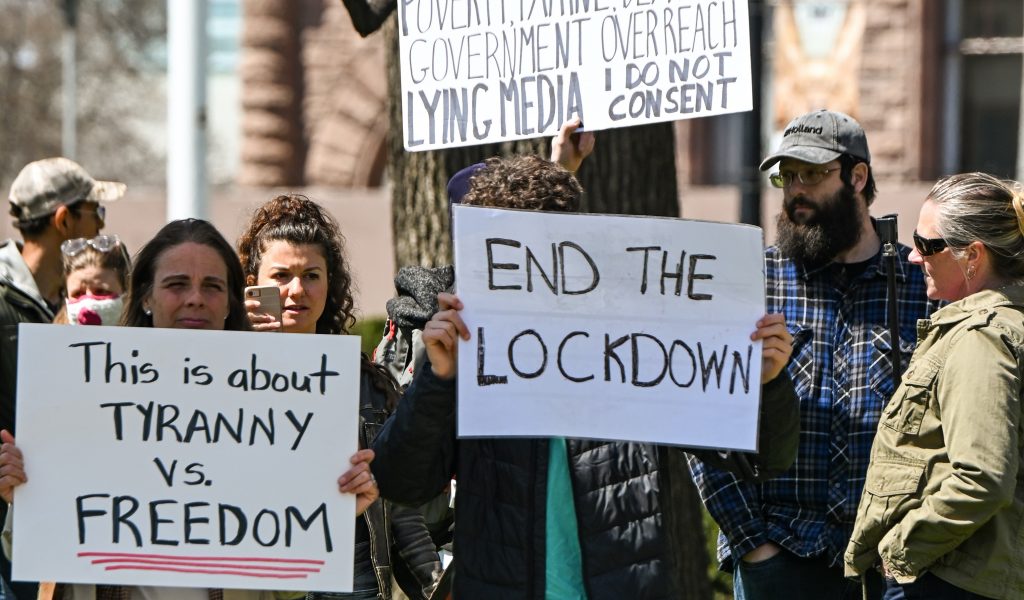This post is also available in Dutch.
My muse for this blog was Elon Musk—but not in a good way:
Musk recently tweeted against US lockdown measures in the global pandemic.
He’s even gone as far as to say, “The coronavirus panic is dumb.” Yikes.
We must then ask: How can the billionaire, founder of Neuralink, and CEO of Tesla and SpaceX blatantly ignore expert advice from science, medicine, and the World Health Organization? Similarly, how can sane people protest against lockdown measures (e.g. in The Hague) despite the staggering number of infections and deaths attributed to the virus? Unfortunately, we’ve also witnessed this kind of stubborn belief in anti-vaxxers, moon landing conspiracy theorists, and Holocaust deniers. Most people, once they’ve fully pledged allegiance to an ideology—or to a person—will not change their minds even when confronted with empirical evidence contradictory to their stance.
Certainty despite uncertainty
In a study of more than 500 adults, developmental psychologists tried to figure out what influences our feeling of certainty. Participants answered questions about a made-up visual object, received feedback about the correctness of their guess, and then reported on how certain they were of their answer—24 times. All 24 questions were about the same object, so individuals could also deduce more information about it by linking together what they have learned from all of their previous answers in addition to the feedback they received. Learn more about their task by watching the video below:
Researchers briefly explain why we stick to false beliefs.
Video by Matthew Mann/University of Rochester.
Results revealed that a person’s confidence while learning was based on his/her most recent, rather than long-term cumulative, performance. People felt more certain about their guesses if they were right the last few times. Recent performance feedback was more valuable in establishing certainty compared to the full range of observations that could have been made throughout the session. For instance, if you were to get the first 20 questions right, but got the last 4 questions wrong, you’d be more likely to say you’re not certain just because you were incorrect the last few times.
The cognitive dynamic demonstrated in the above study shows us how these faulty steps of (il)logic can lead a person down the wrong path. “If you think you know a lot about something, even though you don’t, you’re less likely to be curious enough to explore the topic further and will fail to learn how little you know,” said Louis Marti, the study’s lead author. In order to learn new things, you first have to realize that there’s a difference between what you currently know and what you could know; if you’re already certain of your own knowledge, then you’ll never detect the presence of that gap.
Certainty becomes worldview
In many cases of blustering certainty, people misperceive their opinion to be inextricably linked to their own worldview or self-concept. If they feel as if their worldview is under siege, then their natural inclination is to plant themselves more firmly into the ground. The only way for people to maintain their preconceived beliefs is to bend facts and figures in order to reduce cognitive dissonance. Researchers have found that, indeed, people do reject factual information because, even when presented in a clear and compelling format, it is a psychological threat to their own worldview and identity.
One can always make the argument that those who disagree with scientific knowledge only do so out of methodological skepticism or economic interest. Nevertheless, that doubt and distrust of science is a downstream effect of what is, essentially, an abandonment of the concepts of empirical thought and rationale.
In a mundane everyday dispute, an overly-confident and certain attitude may not be so harmful. In the shadows of the new era of social distancing and lockdown measures, some have become even more staunch advocates of their own dangerous beliefs: racism and xenophobia against people who ‘look’ Chinese, rallies for personal ‘freedoms’ as opposed to public health, ‘opening up’ too early in favor of saving the economy over reducing morbidity and mortality. In this environment, emotions and ideologies have mutated into politicized certainties and, coupled with pluralistic ignorance against the backdrop of a pandemic, are detrimental to the lives of many.
Credits
Original language: English
Author: Christienne Damatac
Buddy: Martina Arenella
Editor: Rebecca Calcott
Translator: Felix Klaassen
Editor Translation: Ellen Lommerse
